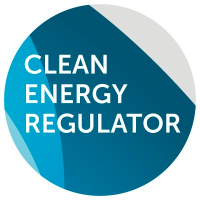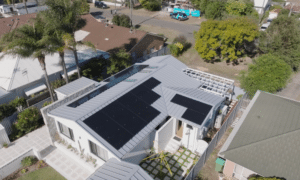The Clean Energy Regulator (CER) is urging solar retailers to get on board with its Solar Panel Validation Initiative to protect customers, plus their brands and reputations.
The CER launched the SPV scheme in 2018 as a way to protect both the industry and its consumers.
Here’s how it works. When doing a solar installation, installers use an app to scan the serial numbers on the solar panels. These are then checked against a database of CEC-approved panels; that is, those that meet Australian standards.

The installer, customer and agent receive a signed data package. The agent then sends the package to the CER, which validates small-scale technology certificates (STCs).
The CER says STC applications process more quickly with validated solar panels. This is typically 48 hours, but from March 2019 could be 24 hours. The time it takes is subject to the application meeting all eligibility requirements.
The CER is also in the process of developing a logo for SPV. The aim of this is to increase consumer awareness of SPV and to drive industry participation.
How Solar Panel Validation initiative protects the industry
The SPV initiative involved government and industry bodies. It works in all kinds of ways to benefit the industry and prevent fraud:
- Provides reassurance to consumers. This includes assurance that their solar panels meet Australian standards, are backed by warranties, and are eligible for STCs. This way they can be sure they are getting what they paid for.
- Helps prevent fraud in the industry. Like many business sectors, the solar industry is vulnerable to fraud, such as the importation of sub-standard products. The SPV helps address this and protects agents and retailers from fraud.
- Improves efficiency within the industry, by speeding up the STC process.
- Helps to protect the business models of manufacturers, agents, installers and retailers. For example, installers know they are installing approved products, agents are less vulnerable to fraudsters, and retailers avoid penalties and damage to their reputation.
As well as a database of approved panels, the CEC also keeps a list of approved solar retailers. To get on the list, retailers must prove they use ethical sales practices, provide 5-year warranties on services and products, and use only CEC-accredited installers.












































